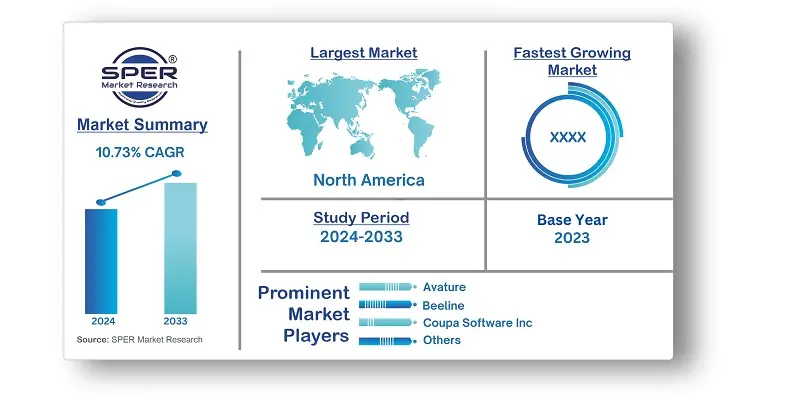
Contingent Workforce Management Market Growth, Size, Trends, Share, Scope and Future Outlook
Contingent Workforce Management Market Size– By Type, By End User- Regional Outlook, Competitive Strategies and Segment Forecast to 2033
| Published: Apr-2024 | Report ID: IACT2476 | Pages: 1 - 230 | Formats*: |
| Category : Information & Communications Technology | |||


| Report Metric | Details |
| Market size available for years | 2020-2033 |
| Base year considered | 2023 |
| Forecast period | 2024-2033 |
| Segments covered | By Type, By End User |
| Regions covered | North America, Asia-Pacific, Latin America, Middle East & Africa and Europe |
| Companies Covered | Avature, Beeline, Coupa Software Inc., cxc global, IMPARTX, PRO Unlimited Inc., Ramco Systems Ltd, SAP SE, the bowen group, Zeel Solutions Ltd., and others. |
- Large Enterprises
- Small and Medium-sized Enterprises (SMEs)
- Government Agencies
- Non-profit Organizations
- Healthcare Industry
- Information Technology (IT) Sector
- Manufacturing Industry
- Financial Services Sector
| By End User: |
|
| By Type: |
|
| By Region: |
|
- Global Contingent Workforce Management Market Size (FY’2024-FY’2033)
- Overview of Global Contingent Workforce Management Market
- Segmentation of Global Contingent Workforce Management Market By Type (Permanent StaffingFlexible Staffing)
- Segmentation of Global Contingent Workforce Management Market By End User (BFSI, Business/Professional Service, Government (Excluding Education), Healthcare
- IT and Telecom, Manufacturing- Automotive, Manufacturing- Consumer Products, Manufacturing-Others, Others, Pharma/biotech/medical equip, Real Estate and rental leasing, Retail trade, Transportation/warehousing/packaging)
- Statistical Snap of Global Contingent Workforce Management Market
- Expansion Analysis of Global Contingent Workforce Management Market
- Problems and Obstacles in Global Contingent Workforce Management Market
- Competitive Landscape in the Global Contingent Workforce Management Market
- Impact of COVID-19 and Demonetization on Global Contingent Workforce Management Market
- Details on Current Investment in Global Contingent Workforce Management Market
- Competitive Analysis of Global Contingent Workforce Management Market
- Prominent Players in the Global Contingent Workforce Management Market
- SWOT Analysis of Global Contingent Workforce Management Market
- Global Contingent Workforce Management Market Future Outlook and Projections (FY’2024-FY’2033)
- Recommendations from Analyst
1.1. Scope of the report1.2. Market segment analysis
2.1. Research data source2.1.1. Secondary Data2.1.2. Primary Data2.1.3. SPER’s internal database2.1.4. Premium insight from KOL’s2.2. Market size estimation2.2.1. Top-down and Bottom-up approach2.3. Data triangulation
4.1. Driver, Restraint, Opportunity and Challenges analysis4.1.1. Drivers4.1.2. Restraints4.1.3. Opportunities4.1.4. Challenges4.2. COVID-19 Impacts of the Global Contingent Workforce Management Market
5.1. SWOT Analysis5.1.1. Strengths5.1.2. Weaknesses5.1.3. Opportunities5.1.4. Threats5.2. PESTEL Analysis5.2.1. Political Landscape5.2.2. Economic Landscape5.2.3. Social Landscape5.2.4. Technological Landscape5.2.5. Environmental Landscape5.2.6. Legal Landscape5.3. PORTER’s Five Forces5.3.1. Bargaining power of suppliers5.3.2. Bargaining power of buyers5.3.3. Threat of Substitute5.3.4. Threat of new entrant5.3.5. Competitive rivalry5.4. Heat Map Analysis
6.1. Global Contingent Workforce Management Market Manufacturing Base Distribution, Sales Area, Ingredients6.2. Mergers & Acquisitions, Partnerships, Product Launch, and Collaboration in Global Contingent Workforce Management Market
7.1. Global Contingent Workforce Management Market Size, Share and Forecast, By Type, 2020-20267.2. Global Contingent Workforce Management Market Size, Share and Forecast, By Type, 2027-20337.3. Permanent Staffing7.4. Flexible Staffing
8.1. Global Contingent Workforce Management Market Size, Share and Forecast, By End User, 2020-20338.2. Global Contingent Workforce Management Market Size, Share and Forecast, By End User, 2027-20338.3. BFSI8.4. Business/Professional Service8.5. Government (Excluding Education)8.6. Healthcare8.7. IT and Telecom8.8. Manufacturing- Automotive8.9. Manufacturing- Consumer Products8.10. Manufacturing-Others8.11. Others8.12. Pharma/biotech/medical equip8.13. Real Estate and rental leasing8.14. Retail trade8.15. Transportation/warehousing/packaging
9.1. Global Contingent Workforce Management Market Size and Market Share
10.1. Global Contingent Workforce Management Market Size and Market Share, By Region (2020-2026)10.2. Global Contingent Workforce Management Market Size and Market Share, By Region (2027-2033)10.3. Asia-Pacific10.3.1. Australia10.3.2. China10.3.3. India10.3.4. Japan10.3.5. South Korea10.3.6. Rest of Asia-Pacific10.4. Europe10.4.1. France10.4.2. Germany10.4.3. Italy10.4.4. Spain10.4.5. United Kingdom10.4.6. Rest of Europe10.5. Middle East and Africa10.5.1. Kingdom of Saudi Arabia10.5.2. United Arab Emirates10.5.3. Qatar10.5.4. South Africa10.5.5. Egypt10.5.6. Morocco10.5.7. Nigeria10.5.8. Rest of Middle-East and Africa10.6. North America10.6.1. Canada10.6.2. Mexico10.6.3. United States10.7. Latin America10.7.1. Argentina10.7.2. Brazil10.7.3. Rest of Latin America
11.1. Avature11.1.1. Company details11.1.2. Financial outlook11.1.3. Product summary11.1.4. Recent developments11.2. Beeline11.2.1. Company details11.2.2. Financial outlook11.2.3. Product summary11.2.4. Recent developments11.3. Coupa Software Inc.11.3.1. Company details11.3.2. Financial outlook11.3.3. Product summary11.3.4. Recent developments11.4. cxc global11.4.1. Company details11.4.2. Financial outlook11.4.3. Product summary11.4.4. Recent developments11.5. IMPARTX11.5.1. Company details11.5.2. Financial outlook11.5.3. Product summary11.5.4. Recent developments11.6. PRO Unlimited Inc.11.6.1. Company details11.6.2. Financial outlook11.6.3. Product summary11.6.4. Recent developments11.7. Ramco Systems Ltd11.7.1. Company details11.7.2. Financial outlook11.7.3. Product summary11.7.4. Recent developments11.8. SAP SE11.8.1. Company details11.8.2. Financial outlook11.8.3. Product summary11.8.4. Recent developments11.9. the bowen group11.9.1. Company details11.9.2. Financial outlook11.9.3. Product summary11.9.4. Recent developments11.10. Zeel Solutions Ltd.11.10.1. Company details11.10.2. Financial outlook11.10.3. Product summary11.10.4. Recent developments11.11. Others
SPER Market Research’s methodology uses great emphasis on primary research to ensure that the market intelligence insights are up to date, reliable and accurate. Primary interviews are done with players involved in each phase of a supply chain to analyze the market forecasting. The secondary research method is used to help you fully understand how the future markets and the spending patterns look likes.
The report is based on in-depth qualitative and quantitative analysis of the Product Market. The quantitative analysis involves the application of various projection and sampling techniques. The qualitative analysis involves primary interviews, surveys, and vendor briefings. The data gathered as a result of these processes are validated through experts opinion. Our research methodology entails an ideal mixture of primary and secondary initiatives.



Frequently Asked Questions About This Report
PLACE AN ORDER
Year End Discount
Sample Report
Pre-Purchase Inquiry
NEED CUSTOMIZATION?
Request CustomizationCALL OR EMAIL US
100% Secure Payment






Related Reports
Our Global Clients
Our data-driven insights have influenced the strategy of 200+ reputed companies across the globe.




















